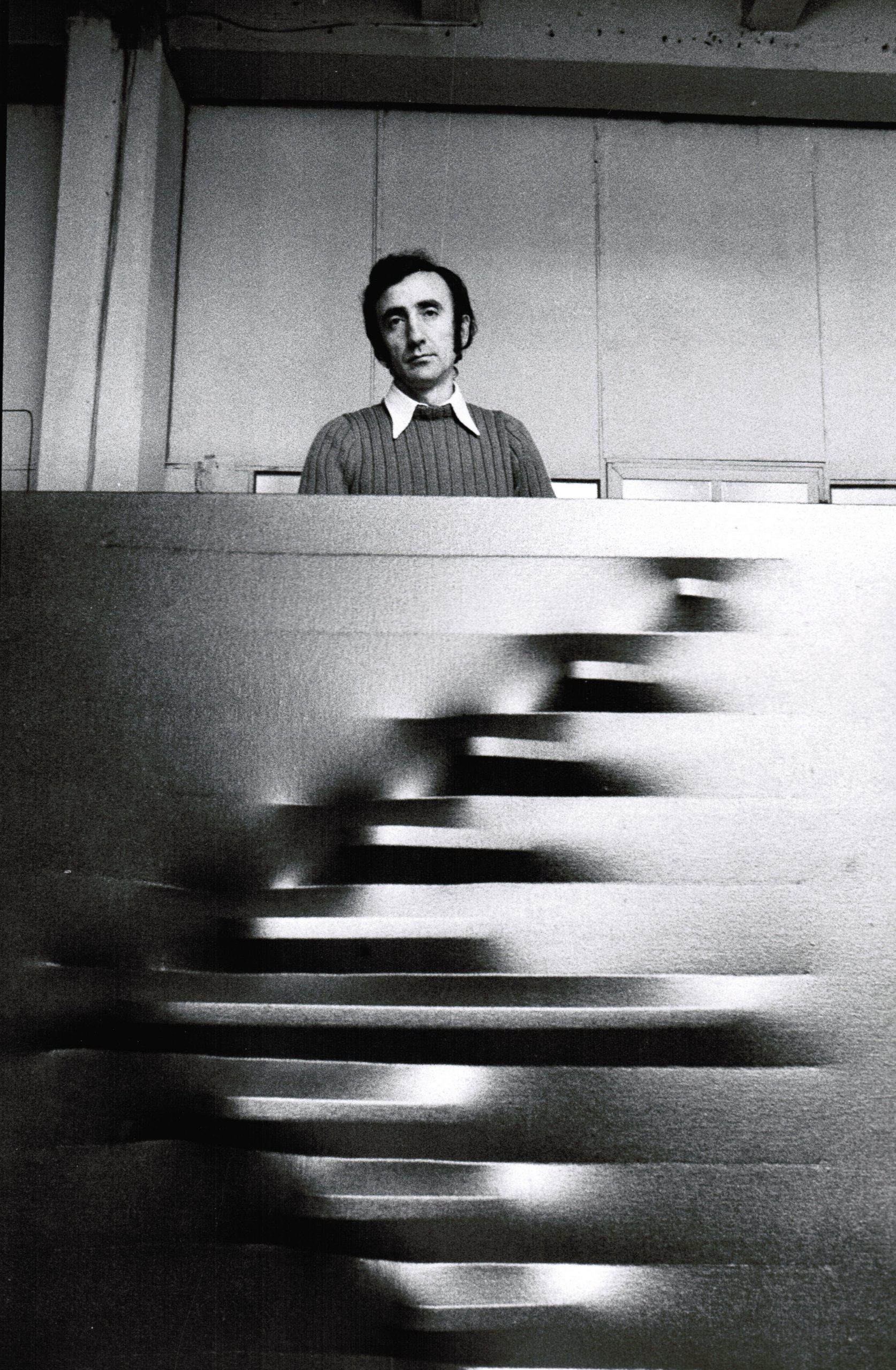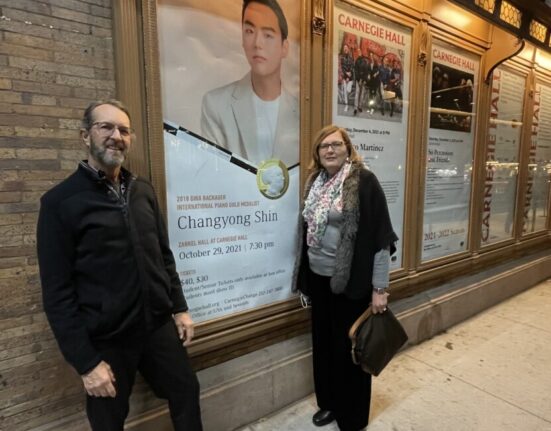Art World
Bonalumi is currently the subject of a major retrospective at Mazzoleni Turin, and a dual-artist exhibition at the gallery’s location in London.
Every month, hundreds of galleries add newly available works by thousands of artists to the Artnet Gallery Network—and every week, we shine a spotlight on one artist or exhibition you should know. Check out what we have in store, and inquire for more with one simple click.
What You Need to Know: Mazzoleni gallery is currently presenting two exhibitions that highlight the life and work of Italian artist Agostino Bonalumi. At the London location, the gallery is staging “The Paradox of Proximity: Agostino Bonalumi and Lee Seung Jio,” which is curated by Marco Scotini. A collaboration with Kukje Gallery, the dual-artist exhibition is on view through November 30, 2023, and themes of the show were further explored through the gallery’s joint booth at Frieze Masters in mid-October.
In Turin, meanwhile, the gallery is presenting a major retrospective of Bonalumi’s work and practice to mark the ten year anniversary of the artist’s death. On view through February 3, 2024, “Agostino Bonalumi: il Teatro delle Forze (a Theatre of Forces)” is also curated by Scotini and highlights the breadth of the artist’s multidisciplinary exploration of the boundaries of art.
Installation view of “The Paradox of Proximity: Agostino Bonalumi and Lee Seung Jio” (2023) at Mazzoleni, London. Photo: Todd-White Art Photography, London. Courtesy of Mazzoleni.
About the Artist: Agostino Bonalumi (1935–2013) studied technical and mechanical drawing as a teenager, and maintained a practice as a painter, sculptor, and draughtsman throughout his life. Early in his career, he worked with Italian avant-garde artists Enrico Castellani and Piero Manzoni, and his work soon gained critical acclaim. Inspired by the work of Lucio Fontana, in the late 1950s he developed the concept of “pittura-oggetto” or “painting-object,” wherein Bonalumi sought to dissolve the boundaries between painting and sculpture. Another innovation of his practice was the slightly later “extroflections,” where shapes pushed against a taut canvas to create a relief effect. Working in the midst of numerous post-war avant-garde movements, such as Art Informel, Arte Povera, and the ZERO movement, Bonalumi became a significant figure within the 20th-century Italian art scene, which extended beyond the traditional art world. In the 1970s, he undertook set design, creating stage and costume designs for ballet productions in both Verona and Rome. In 2002, he was awarded the prestigious Presidente della Repubblica Prize.
Why We Like It: While Bonalumi’s work shown alongside that of pioneering Korean artist Lee Seung Jio in Mazzoleni’s London exhibition highlights the intriguing parallels between 1960s Korean and Italian avant-gardism, in the gallery’s Turn retrospective of Bonalumi’s oeuvre, visitors have the opportunity to explore and discover the many facets of the artist’s prodigious career. Featuring examples of Bonalumi’s large scale plastic works alongside preparatory sketches drawn from the Archivio Bonalumi, the thought processes and elements of experimentation within each work are traceable and appreciable. Included paintings, drawings, and photographs of the artist’s set designs further underscore his fearlessly boundary-crossing line of artistic inquiry. Perhaps most intriguing is the seeable influence of other seminal artists such as Manzoni and Fontana, as Bonalumi’s work in many regards carried on the spirit of their creative projects. Together, the works that comprise “Agostino Bonalumi: il Teatro delle Forze (a Theatre of Forces)” exemplify just that, a cacophony of forces that proved an important moment in art historical canon.
See inside “Agostino Bonalumi: il Teatro delle Forze (A Theatre of Forces)” below.
Installation view of “Agostino Bonalumi: il Teatro delle Forze” (2023). Photo: Agostino Osio. Courtesy of Mazzoleni.
Installation view of “Agostino Bonalumi: il Teatro delle Forze” (2023). Photo: Agostino Osio. Courtesy of Mazzoleni.
Installation view of “Agostino Bonalumi: il Teatro delle Forze” (2023). Photo: Agostino Osio. Courtesy of Mazzoleni.
Installation view of “Agostino Bonalumi: il Teatro delle Forze” (2023). Photo: Agostino Osio. Courtesy of Mazzoleni.
Installation view of “Agostino Bonalumi: il Teatro delle Forze” (2023). Photo: Agostino Osio. Courtesy of Mazzoleni.
“The Paradox of Proximity: Agostino Bonalumi and Lee Seung Jio” is on view at Mazzoleni, London, through November 20, 2023.
“Agostino Bonalumi: il Teatro delle Forze (A Theatre of Forces)” is on view at Mazzoleni, Turin, through February3, 2023.
Follow Artnet News on Facebook:
Want to stay ahead of the art world? Subscribe to our newsletter to get the breaking news, eye-opening interviews, and incisive critical takes that drive the conversation forward.







